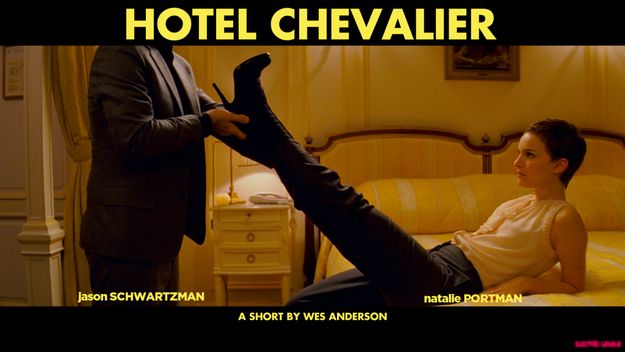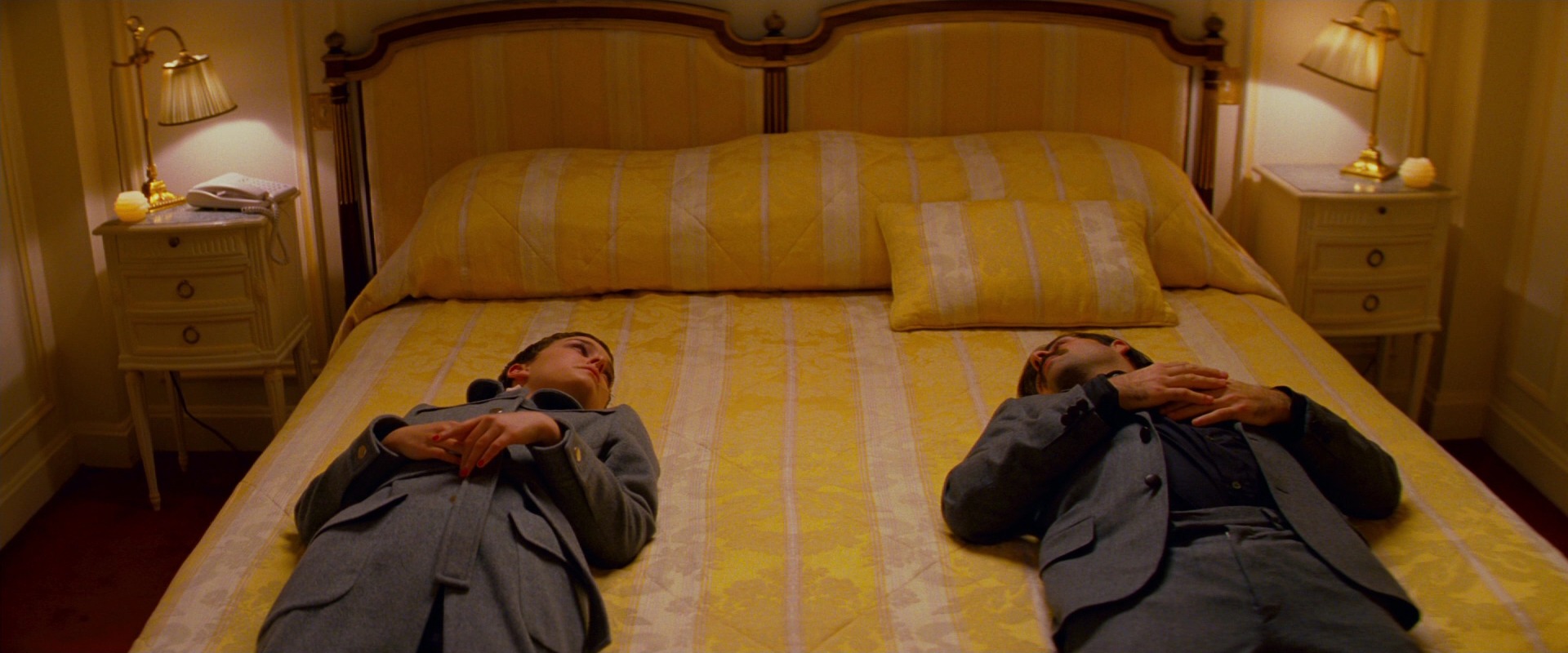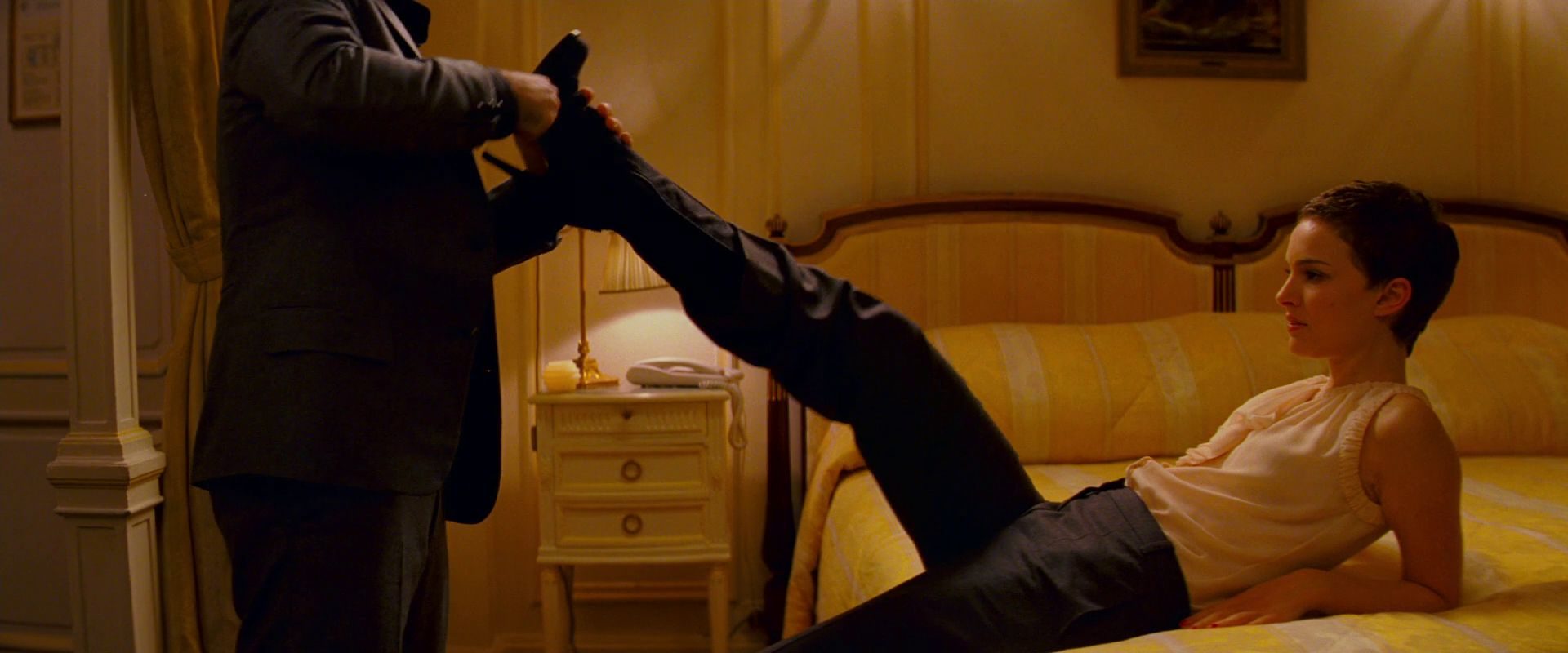Hotel Chevalier (2007)

Hotel Chevalier is a 2007 short film directed by Wes Anderson, written by Anderson and Roman Coppola. The film serves as a prelude to Anderson’s feature-length film The Darjeeling Limited (2007), but it stands on its own as a deeply emotional exploration of love, loss, and personal introspection. With a runtime of just 13 minutes, Hotel Chevalier is packed with stylish visuals, sharp dialogue, and emotional depth. The short stars Jason Schwartzman and Natalie Portman, whose performances bring a sense of intimacy and complexity to the film.
Set in a luxurious hotel room in Paris, Hotel Chevalier focuses on the reunion between Jack (Jason Schwartzman) and his former lover, whom he has not seen for years. The film begins with Jack sitting alone in his hotel room, listening to music and reflecting on his life. Soon, his ex-girlfriend (Natalie Portman) arrives, and the two engage in a tense and emotionally charged conversation. The short film centers around their awkward reunion, as they navigate unresolved feelings, old wounds, and the passage of time. The quiet yet poignant dialogue and interactions between the two characters draw viewers into their shared history and complicated relationship.
At the heart of Hotel Chevalier is the theme of love and the regrets that accompany past relationships. The film explores how love can be both beautiful and painful, and how unresolved feelings from the past continue to affect our lives. As Jack and his ex-lover reconnect, the film reveals the emotional scars they have both carried, particularly Jack, who seems unable to fully move on from their breakup. The film’s minimalistic approach allows these themes to emerge slowly and subtly, leaving the audience to reflect on the complexities of human relationships and the lingering impact of lost love.
Despite the short length of the film, the performances of Schwartzman and Portman are remarkably deep and layered. Jason Schwartzman’s portrayal of Jack is full of vulnerability and awkwardness, capturing the character’s internal struggle and hesitance in facing his past. Natalie Portman’s character is mysterious and composed, but she too shows signs of emotional depth, revealing the pain and longing she still feels. Their chemistry is palpable, and their interaction feels both natural and intense. The film succeeds in creating a genuine sense of intimacy between the two characters, making their unresolved relationship feel real and affecting.

Wes Anderson’s direction in Hotel Chevalier is characterized by his signature visual style, which includes meticulously framed shots, symmetrical compositions, and an attention to detail that creates a distinctive atmosphere. The hotel room itself becomes a character in the film, with its warm, vintage decor and muted color palette contributing to the mood of reflection and nostalgia. Anderson’s use of music is also notable, with the song “Where Do You Go to (My Lovely)” by Peter Sarstedt playing an important role in setting the emotional tone of the film. The combination of these elements creates a film that is visually striking and emotionally resonant.

Hotel Chevalier was well received by critics and audiences, particularly for its unique blend of emotional depth and stylistic flair. Many appreciated how Anderson was able to tell a complete and meaningful story in such a short amount of time. The film’s restrained approach to its subject matter, paired with its visual richness, made it a standout example of how a short film can convey profound emotions. While some viewers may have initially seen it as a mere companion piece to The Darjeeling Limited, Hotel Chevalier has been recognized as a powerful and self-contained narrative about love, regret, and personal growth.

In conclusion, Hotel Chevalier is a beautifully crafted short film that explores the complexities of love, loss, and personal introspection. Through strong performances, a carefully constructed visual style, and a poignant narrative, Wes Anderson successfully captures the emotional nuances of a brief yet meaningful reunion between two former lovers. The film serves as a reminder of the lingering effects of past relationships and the emotional baggage that can remain long after a love has ended. Hotel Chevalier stands as a testament to Anderson’s ability to tell deep and affecting stories within a limited timeframe, leaving a lasting emotional impact on its audience.










